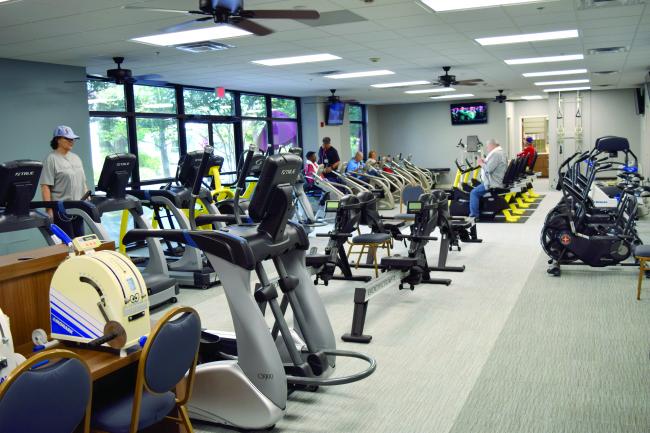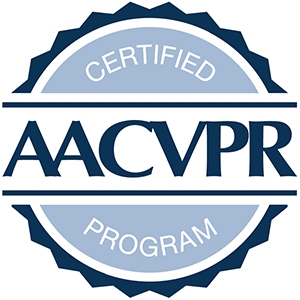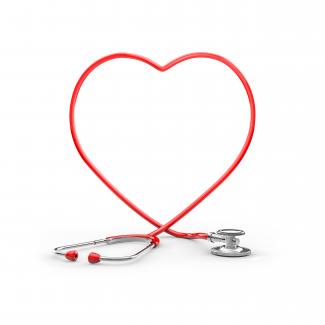Springhill Medical Center’s Accredited Cardiac Rehabilitation (Cardiac Rehab) Program is housed on the first floor of the Heart Center, which is conveniently located on Dauphin Street at I-65.
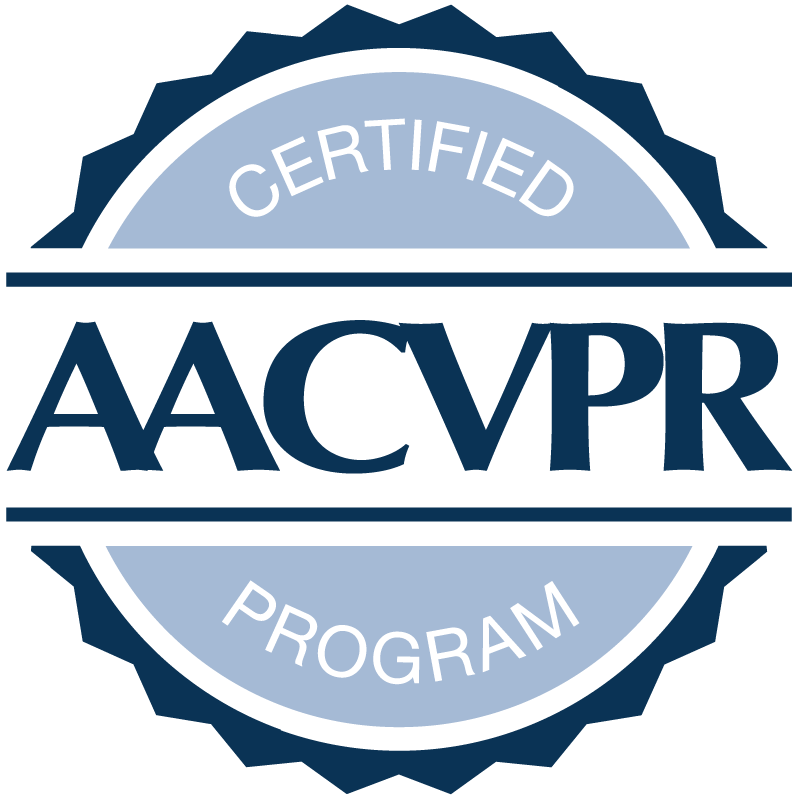 SMC Heart Center Features:
SMC Heart Center Features:
- A 92,000-square-foot building that includes cardiac rehab, cath lab, open heart surgery, and cardiologist offices.
- All-inclusive diagnostic group of services including nuclear medicine, non-invasive vascular lab, EKG, mitral valve prolapse clinic, congestive heart failure clinic, and valet parking.
- State-of-the-art monitoring and exercise equipment designed for medical rehabilitation.
Program Goals
- Improve understanding of heart disease through education
- Improve cardiovascular fitness through structured and supervised exercise
- Decrease patient’s risk factors
- Manage emotional stress
- Control and decrease symptoms of heart disease
- Improve the quality of life
- Develop a proper diet through education
- Promote effective smoking cessation
- Relaxation techniques
Common Diagnoses That Benefit From Cardiac Rehabilitation
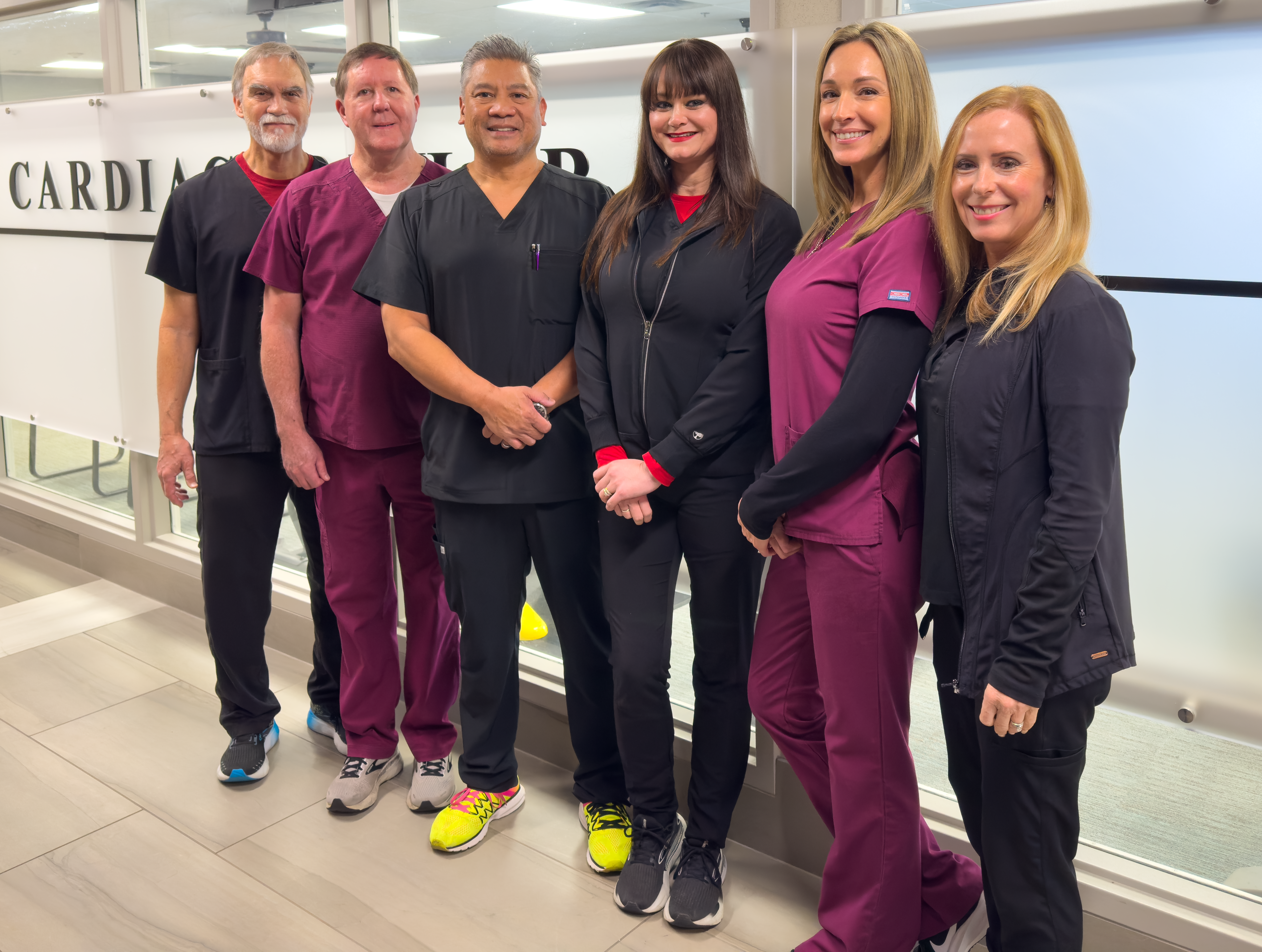
- Myocardial Infarction (heart attack)
- Coronary Artery Bypass Graft (open heart surgery)
- Stable angina (controlled chest pain)
Referral for “Back-on-Track” Program
Each patient entering the Cardiac Rehab program must be referred by his/her physician.
“Back-on-Track” Cardiac Rehabilitation Program
- Accredited by the American Association of Cardiovascular and Pulmonary Rehabilitation (AACVPR)
- Begins 2-4 weeks following a heart attack or 6-8 weeks after heart surgery
- Class typically lasts for 12 weeks, meeting 3 times per week for a total of 36 sessions
- Classes offered Monday through Friday at various times throughout the morning and afternoon
- Education classes are held on Tuesday and Thursday and begin a new cycle every two weeks
- Staff includes a board-certified cardiologist, nurses certified in Advanced Cardiac Life Support, and exercise physiologists
- Upon completion of the program, you may continue to stay within our maintenance phase of “Back-on-Track”
- Counseling and massage therapy on site to help patients manage stress and relax
Medical Director
Pulmonary Therapy Program
“Back-on-Track”
Program Goals
- Improve understanding of lung disease through education
- Improve physical fitness through structured and supervised exercise
- Educate patients about medication
- Provide instruction about the use of medical equipment
- Develop proper diets
- Improve breathing techniques
- Control and decrease symptoms of lung disease
- Manage panic attacks/relaxation techniques
- Improve the quality of life
- Promote effective smoking cessation
Common Diagnoses That Benefit From Pulmonary Therapy Program
- Chronic Obstructive Pulmonary Disease (COPD)
- Emphysema
- Chronic asthma
- Pulmonary fibrosis
- Asbestosis
- Sarcoidosis
- Cystic fibrosis
- Chronic bronchitis
- Bronchiectasis
- Lung cancer
Our Exercise Program
- The exercise program typically lasts for 6 weeks, meeting three times weekly for a total of 18 sessions.
- Classes are offered Monday through Friday at various times in the morning and afternoon. Education classes are held on Tuesdays and Thursdays and begin a new cycle every two weeks.
- Staff includes a board-certified pulmonologist, a registered respiratory therapist, registered nurses certified in Advanced Cardiac Life Support, and exercise physiologists.
- Upon completion of the program, you may continue to stay within our maintenance phase of “Back-on-Track.”
- Counseling and massage therapy on-site to help patients manage stress, panic attacks, and relax breathing muscles.
Medical Director
Mitral Valve Prolapse
Mitral Valve Prolapse (MVP) is NOT a disease; it is a disorder. A person with mitral valve prolapse has a slight change in the shape of the mitral valve which allows a part of the valve to float backward during the heart’s contraction. The backward movement of the mitral valve allows a small amount of blood to leak back into the atrium of the heart. These abnormal movements of the valve can produce a click or murmur sound which can be detected by a stethoscope.
Common Symptoms
- Irregular heartbeat: fluttering, skipping, palpitations
- Racing heartbeat: pounding
- Shortness of breath: even at rest
- Chest pain
- Panic attacks and/or anxiety attacks
- Fatigue: always tired, easily exhausted
Program Features
- Testing to help doctors diagnose the disorder
- Education classes to help patients better understand MVP
- Structured and supervised exercise to help improve cardiovascular fitness
- Instruction about nutrition and medications
- On-site counseling to help patients manage stress and panic attacks
- Table massage to help patients manage stress
Program Goals
- Improve understanding of MVP
- Improve cardiovascular fitness
- Manage stress and panic attacks
- Improve the quality of life
Tests Performed at Springhill Medical Center
- Echocardiogram
- Autonomic Nervous System Test (Tilt Table Test)
- Metabolic Stress Test
